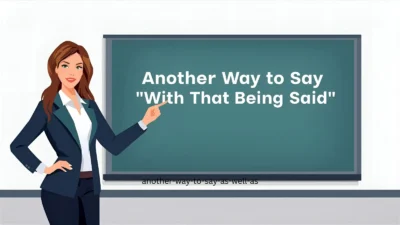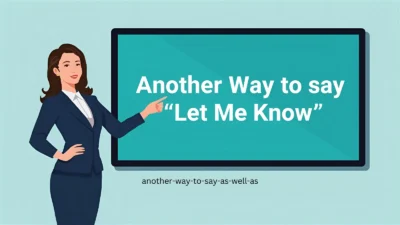The word “experience” is one of the most versatile terms in English. It can refer to knowledge or skills gained over time (e.g., “work experience”), or to an event someone goes through (e.g., “a fun experience”). Because of this dual meaning, it often gets overused in resumes, academic writing, conversations, and storytelling.
To make your communication clearer, more engaging, and professional, it helps to have a range of synonyms. In this article, you’ll discover 48 alternatives to the word “experience,” complete with meanings, explanations, examples, best use cases, and tone.
1. Encounter
Meaning: Coming across or facing something.
Explanation: Suggests a direct or unexpected meeting.
Example: “She had an encounter with new cultures while traveling.”
Best Use: Storytelling, casual or formal.
Tone: Neutral.
2. Background
Meaning: Knowledge, education, or history in a field.
Explanation: Often used in resumes or formal introductions.
Example: “He has a background in software engineering.”
Best Use: Professional, academic.
Tone: Formal.
3. Exposure
Meaning: Contact with new situations or ideas.
Explanation: Highlights learning through involvement.
Example: “The internship gave her exposure to real-world projects.”
Best Use: Professional development, education.
Tone: Semi-formal.
4. Skill
Meaning: Ability gained through practice.
Explanation: Focuses on practical knowledge.
Example: “His leadership skill comes from years of managing teams.”
Best Use: Job applications, resumes.
Tone: Formal.
5. Knowledge
Meaning: Information acquired through practice or study.
Explanation: General understanding based on experience.
Example: “She gained knowledge of local customs during her stay.”
Best Use: Academic, professional.
Tone: Neutral to formal.
6. Expertise
Meaning: High-level knowledge or skill.
Explanation: Shows mastery in a subject.
Example: “He has expertise in financial management.”
Best Use: Professional bios, resumes.
Tone: Formal, authoritative.
7. Event
Meaning: Something that happens.
Explanation: Neutral word for an occurrence.
Example: “The concert was an unforgettable event.”
Best Use: Everyday speech, casual writing.
Tone: Neutral.
8. Adventure
Meaning: Exciting or unusual experience.
Explanation: Adds fun and thrill.
Example: “Backpacking across Europe was a real adventure.”
Best Use: Travel writing, personal stories.
Tone: Fun, informal.
9. Journey
Meaning: A process of learning or development.
Explanation: Metaphorical for personal growth.
Example: “Her career has been a journey of continuous learning.”
Best Use: Motivational writing, speeches.
Tone: Inspirational.
10. Practice
Meaning: Repeated action leading to skill.
Explanation: Focuses on doing rather than seeing.
Example: “Through years of practice, he mastered public speaking.”
Best Use: Education, training.
Tone: Neutral.
11. Accomplishment
Meaning: Achievement gained through effort.
Explanation: Emphasizes results of experience.
Example: “Her biggest accomplishment was leading the project to success.”
Best Use: Resumes, professional bios.
Tone: Formal, positive.
12. Incident
Meaning: Specific occurrence or event.
Explanation: Often unexpected or noteworthy.
Example: “The incident left a lasting impression on him.”
Best Use: Storytelling, formal reports.
Tone: Neutral to serious.
13. Episode
Meaning: A distinct event in a series.
Explanation: Used for storytelling or historical accounts.
Example: “That episode in his life taught him resilience.”
Best Use: Narratives, biographies.
Tone: Neutral.
14. Engagement
Meaning: Active involvement.
Explanation: Highlights participation.
Example: “Her engagement with community work shaped her career path.”
Best Use: Academic, professional.
Tone: Formal.
15. Moment
Meaning: A short but meaningful event.
Explanation: Often emotional or memorable.
Example: “It was a moment of pure joy.”
Best Use: Storytelling, casual writing.
Tone: Emotional, informal.
16. Trial
Meaning: A test or challenge.
Explanation: Focuses on difficulties faced.
Example: “The trial taught him patience and perseverance.”
Best Use: Formal, reflective writing.
Tone: Serious.
17. Learning
Meaning: Knowledge gained through experience.
Explanation: Highlights growth and improvement.
Example: “Every mistake is a learning opportunity.”
Best Use: Academic, personal development.
Tone: Neutral.
18. Participation
Meaning: Involvement in an activity.
Explanation: Shows active role in something.
Example: “Her participation in the program gave her confidence.”
Best Use: Professional, educational contexts.
Tone: Formal.
19. Familiarity
Meaning: Comfort gained through repeated exposure.
Explanation: Suggests partial but not expert knowledge.
Example: “He has familiarity with coding languages.”
Best Use: Resumes, casual explanations.
Tone: Neutral.
20. Track Record
Meaning: Past performance history.
Explanation: Professional way to showcase experience.
Example: “She has a strong track record in project management.”
Best Use: Resumes, business profiles.
Tone: Formal, professional.
21. Tenure
Meaning: Time spent in a role.
Explanation: Highlights duration of work experience.
Example: “During his tenure at the company, he launched several initiatives.”
Best Use: Professional writing.
Tone: Formal.
22. Development
Meaning: Growth or progress over time.
Explanation: Shows improvement from experiences.
Example: “The program contributed to her professional development.”
Best Use: Academic, business.
Tone: Formal.
23. Wisdom
Meaning: Insight gained through experience.
Explanation: Adds a reflective or philosophical touch.
Example: “With age comes wisdom from lived experiences.”
Best Use: Inspirational, personal reflection.
Tone: Thoughtful.
24. Practice History
Meaning: Record of repeated action and learning.
Explanation: Useful in professional or technical contexts.
Example: “His practice history demonstrates expertise in the field.”
Best Use: Professional, medical, or academic contexts.
Tone: Formal.
25. Milestone
Meaning: Significant event in progress.
Explanation: Marks a key point in growth or achievement.
Example: “Graduation was a major milestone in her journey.”
Best Use: Motivational, professional.
Tone: Positive, formal.
Conclusion
The word “experience” can take on many forms, from everyday events to years of professional growth. By choosing alternatives like “expertise,” “exposure,” “encounter,” or “milestone,” you can make your communication more precise, engaging, and suited to your audience. Whether you’re writing a resume, telling a story, or sharing life lessons, these synonyms give you fresh ways to express the depth of your experiences.



